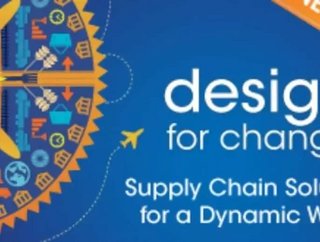South African supply chain event offers skill development

This year’s annual conference from professional association SAPICS promises sought-after skills development to supply chain professionals without organizations having to cope with long periods of absence.
Describing supply chain professionals as an ‘increasingly sought after resource’, a statement released by the professional association SAPICS claims that this year’s industry event will keep professionals’ skills ‘current in an industry subject to continuous change’, offering companies that don’t have the resources to pay for absences and skills development training an avenue to develop their employees.
“Supply chain departments and their staff are vital to the day-to-day operations of any organisation—and yet they also need to spend time on staying abreast of new technologies, standards and best practices from around the world,” says Liezl Smith, president of SAPICS.
“The SAPICS annual conference offers a way for these valuable professionals to hear leading international experts in the field, benefit from case studies and network with fellow professionals all within a two-and-a-half-day timeframe: it’s literally everything a supply chain professional needs to stay on top of his or her game each year,” says Smith.
SAPICS is a professional association dedicated to helping organisations and individuals improve operational performance through supply chain education, certification and knowledge-sharing. Closely allied with key global supply chain organisations such as the Institute of Business Forecasting, APICS (The Association for Operations Management), the Supply Chain Council, the Chartered Institute of Logistics and Transport South Africa and the South African Shippers Council, SAPICS have a large network to share information through.
This year’s conference is structured around the theme Design for change: ‘Supply chain solutions for a dynamic world’.
Focusing on African Issues
This year’s conference will cover broad trends affecting the profession, like enterprise mobility, as well as industry-specific issues. There will also be a focus on peculiarly South African issues such as, for example, the impact of the AIDS pandemic on the logistics industry.
“AIDS has decimated the most skilled cadre of drivers on whom the industry should be relying. In this case, the ability to get drivers trained and operational quickly is a competitive advantage.” said SAPICS Director Terry O’Donoghue.
“The business environment itself is changing rapidly, as is the technology that it uses—with big implications for supply chains,” he continued. “How does one build supply chains that embrace that change and create new sources of competitive advantage for our organisations?”
The SAPICS annual conference, Design for change, will take place on 2-4 June 2013 at Sun City.






